The windswept cliffs and golden beaches of North Cornwall had always beckoned to us, promising an escape into the heart of natural beauty and historical wonder. So, we embarked on a remarkable camping journey through North Cornwall, where we pitched our tents at two extraordinary campsites: Beacon Cottage Farm and St Agnes Beacon. I’ll lead you through our experiences, providing an in-depth look into campsite selection, tent setup, essential gear, weather considerations, safety measures, and our personal recommendations. North Cornwall unfolded before us, and it was an adventure that not only etched cherished memories in our minds but also yielded valuable insights and tips to share.
Camping at Beacon Cottage Farm
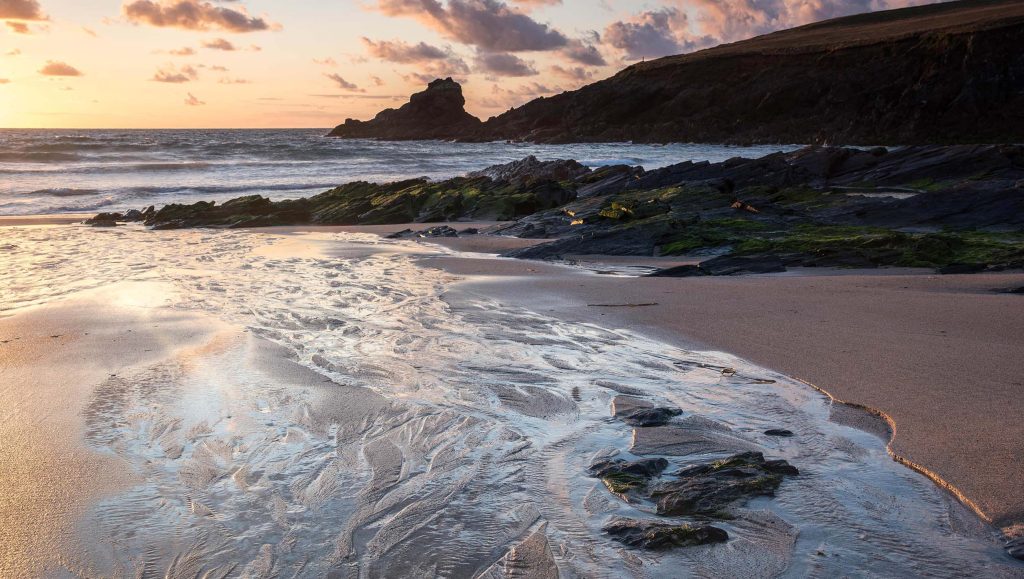
Choosing the Perfect Campsite
Our adventure began at Beacon Cottage Farm, a charming campsite nestled in the rolling countryside just outside the picturesque village of St Agnes. Selecting the right campsite is a crucial part of the journey, and the factors we considered may guide you in your own choice:
- Location: Beacon Cottage Farm is strategically located, serving as an ideal hub for exploring the North Cornwall region. Its proximity to St Agnes, St Agnes Beacon, and the enchanting Chapel Porth beach make it an excellent choice for those who want to experience a variety of landscapes.
- Scenic Beauty: The campsite’s natural charm lies in the panoramic views of the undulating hills, offering an exquisite backdrop to our camping adventure. As the golden sunsets painted the sky, we felt like privileged spectators to nature’s daily masterpiece.
- Facilities: A key factor in our decision to camp here was the availability of clean and well-maintained facilities. These included toilets, showers, and a washing-up area, adding a layer of comfort to our camping experience.
- Campsite Rules: It’s imperative to adhere to the campsite’s regulations. Such rules often include designated quiet hours to ensure that all guests can enjoy a peaceful stay. By respecting these guidelines, we collectively foster a tranquil and respectful camping environment.
Setting Up Camp
Pitching a tent is an art and a science, and getting it right is essential for a comfortable and enjoyable camping experience. Here’s a step-by-step guide based on our own setup process:
- Choosing the Right Spot: Selecting an appropriate campsite location is the initial challenge. We opted for a spot that offered level ground, ensuring a good night’s sleep. Additionally, we took care to steer clear of any potential hazards, like areas prone to flooding or spots beneath trees with dead branches.
- Tent Selection: Choosing the right tent for your adventure is crucial. Our three-season tent was well-suited for the mild climate of North Cornwall, but it’s important to pick a tent that aligns with your specific needs. Always check the manufacturer’s guidelines for pitching your tent correctly.
- Tent Pitching: The tent must be properly pitched and secured. The key to this lies in following the manufacturer’s instructions and ensuring that the tent is adequately anchored with stakes. Cornwall’s weather can be unpredictable, and the wind can be strong, so a well-pitched tent is essential.
Essential Equipment
Packing the right gear can make all the difference in your camping experience. Here’s a list of essential equipment we carried:
- Sleeping Bags and Mats: High-quality sleeping bags provided us with warmth during chilly Cornish nights. Comfortable sleeping mats served as insulation from the cold ground, ensuring a cozy and restful sleep.
- Cooking Gear: We brought along a portable camping stove, cookware, and utensils, allowing us to prepare hot meals and brew that all-important morning coffee. Cooking is an enjoyable part of the camping experience, and the right gear enhances that joy.
- Clothing: When it comes to clothing, layers are your best friends in North Cornwall’s ever-changing weather. Be sure to pack waterproof and windproof jackets, trousers, and covers for your gear. Adequate clothing ensures you’re ready for the unexpected rain or wind, guaranteeing a comfortable camping experience.
- Lighting: A reliable headlamp or torch is indispensable, as it aids in navigating the campsite at night and finding your way to the facilities.
A Taste of Beacon Cottage Farm
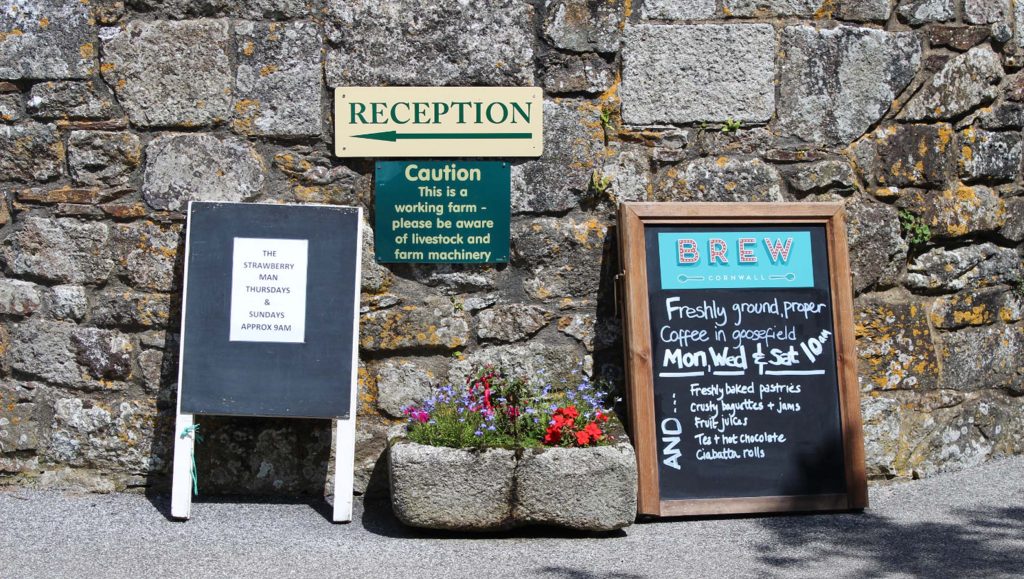
During our stay at Beacon Cottage Farm, we had the pleasure of savoring the delicious simplicity of camping cuisine. While it’s essential to pack non-perishable food items, we also indulged in local flavors by trying out the café located within the campsite. This added a delightful touch to our camping adventure.
At the café, perched on the edge of the world, we enjoyed classic Cornish cream teas that felt like a treat in the midst of a dream. Sipping tea and savoring scones topped with clotted cream and strawberry jam against the backdrop of the mesmerizing ocean views was a highlight of our visit. The café staff were warm and welcoming, creating an environment that made relaxation almost involuntary. It was moments like these that added a touch of luxury to our camping experience and allowed us to experience Cornwall’s culinary delights.
Camping at St Agnes Beacon
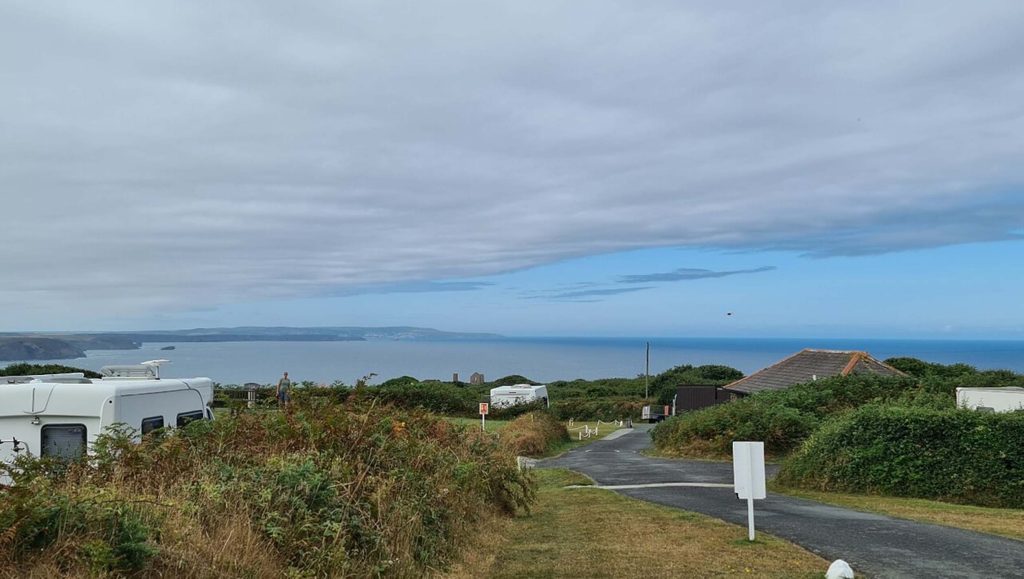
A Serene Escape
Our second camping destination, St Agnes Beacon, offered an entirely different camping experience. It is considered more of a wild camping spot, which means that it provides very basic facilities, or none at all. For those seeking a closer communion with nature and the thrill of self-sufficiency, this is the ideal spot.
Here’s what you need to know about camping at St Agnes Beacon:
- Simplicity: St Agnes Beacon offers a more rustic experience, with campers required to be self-sufficient. This means carrying all essential supplies, including water and portable toilets. Additionally, there are no showers or other facilities available, and campers are responsible for their own waste management.
- Scenic Beauty: The campsite’s beauty lies in its wild, untamed character. Set high on the cliffs, it provides stunning panoramic views of the coast and the iconic St Agnes Beacon itself. It’s an ideal spot for those who love stargazing, as the absence of artificial light pollution allows the night sky to shine in all its glory.
- Permits and Regulations: While camping is allowed at St Agnes Beacon, it’s crucial to check if any permits are required or specific regulations need to be followed. Given that it is more of a wild camping experience, it’s especially important to be respectful of the natural environment and adhere to Leave No Trace principles.
Preparing for St Agnes Beacon
Camping at a wilder spot like St Agnes Beacon necessitates more comprehensive preparation. Here are some practical tips to ensure a safe and enjoyable experience:
- Water and Food: Carrying an adequate supply of water is critical, as natural water sources may be limited or require purification. Additionally, packing non-perishable food items that don’t require refrigeration is essential for your sustenance during the camping adventure.
- Waste Management: When camping in remote locations like St Agnes Beacon, the responsibility of waste management falls on the camper. Always follow Leave No Trace principles and pack out everything you bring, including trash and waste. Portable toilets are often necessary, and it’s crucial to dispose of waste responsibly.
The Beauty of Wild Camping
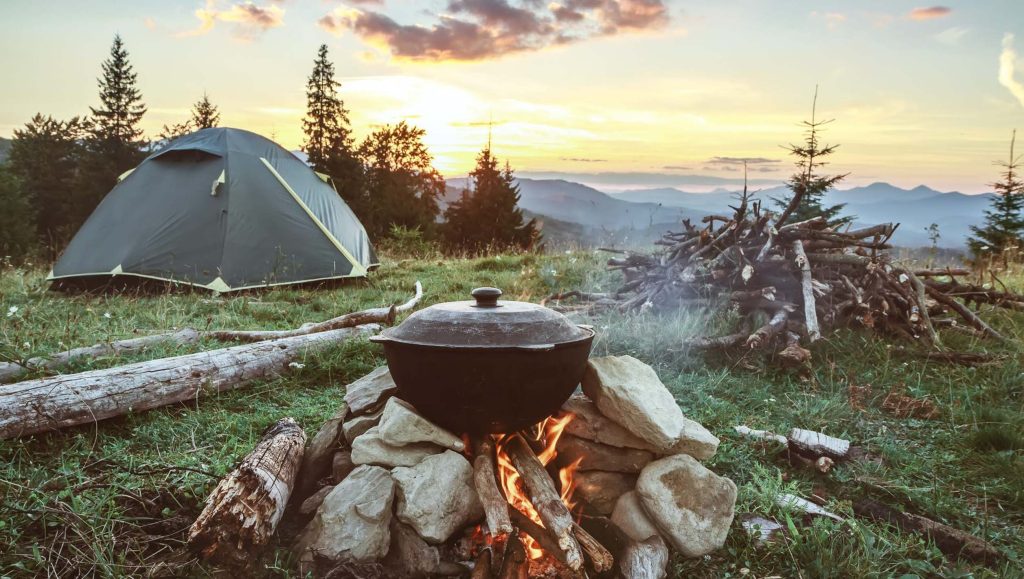
While camping at St Agnes Beacon required more preparation and self-sufficiency, it offered us an unparalleled sense of freedom and a deeper connection with nature. As we sat around the campfire, watching the sun set over the ocean, we felt a profound connection to the landscape and a sense of accomplishment in our ability to embrace the wild.
The absence of modern conveniences and facilities encouraged us to rely on our resourcefulness, and the experience became a lesson in minimalism. With no artificial lights to dilute the night sky, we were treated to a breathtaking celestial show. The Milky Way stretched across the sky, and shooting stars streaked across the darkness. It was a stark reminder of the natural beauty that often eludes us in our daily lives.
North Cornwall Weather
Cornwall’s weather can be both unpredictable and extreme. Understanding its weather patterns and packing accordingly are essential for a successful camping adventure.
Cornwall’s Weather Patterns
North Cornwall, like the rest of the region, experiences a maritime climate characterized by mild temperatures and frequent rain. However, Cornwall’s location on the southwestern tip of England exposes it to Atlantic weather systems, which can bring rapid changes in weather conditions.
The region is also known for strong winds, particularly along the coast, which can be both exhilarating and challenging. It’s not uncommon to experience all four seasons in a single day, making it crucial to pack clothing and gear suitable for various conditions.
Packing for Unpredictability
Here are some essential items to consider packing to deal with Cornwall’s unpredictable weather:
- Rain Gear: Pack waterproof jackets, trousers, and covers for your gear. Keeping yourself and your belongings dry is paramount to a comfortable camping experience. Even if the forecast appears promising, it’s advisable to have rain gear on hand.
- Wind Considerations: Cornwall’s coast is known for strong winds, which can be particularly challenging if you’re camping at exposed locations like St Agnes Beacon. Ensure that your tent is sturdy, well-anchored, and built to withstand strong winds. Avoid setting up on exposed ridges or hilltops, where the full force of the wind can be intense.
- Layered Clothing: Dressing in layers allows you to adapt to changing conditions. Pack both warm and lightweight clothing, and be sure to include windproof and waterproof options. This flexibility ensures that you remain comfortable, regardless of the weather’s capriciousness.
Safety and Outdoor Etiquette
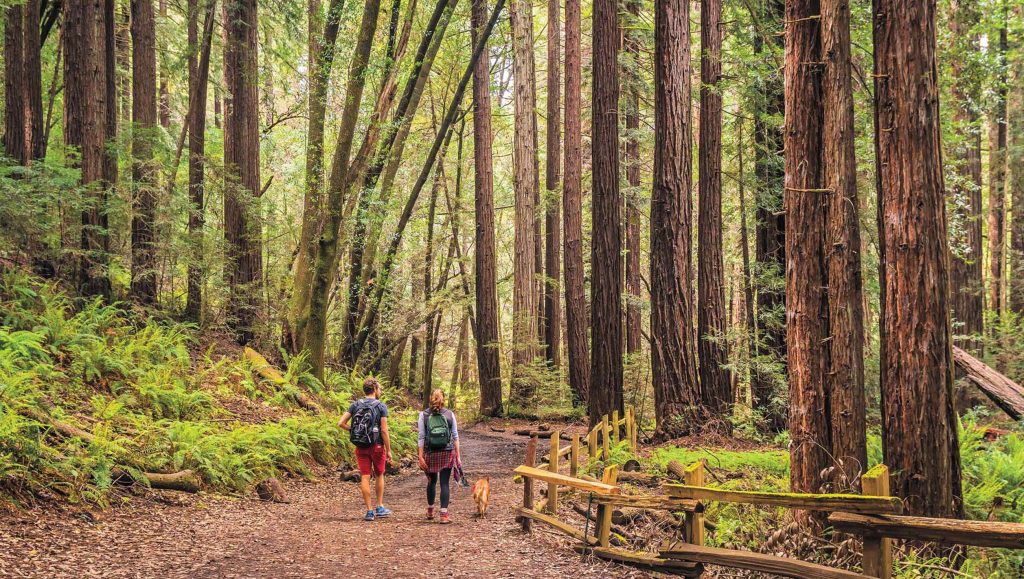
Prioritizing safety and adhering to environmental responsibilities are fundamental principles of camping. Here are some safety measures and outdoor etiquette guidelines we followed during our camping journey:
Prioritizing Safety
- Emergency Supplies: Always carry a basic first-aid kit, a torch or headlamp, and a charged mobile phone with emergency contact numbers. Being prepared for minor injuries and unexpected situations ensures that you can handle them promptly and effectively.
- Wildlife Awareness: Cornwall’s landscapes are rich in biodiversity, and respecting the local wildlife is essential. Be aware of the presence of wildlife in the area and take care to avoid disturbing their habitats. Keep food stored securely to avoid attracting unwanted visitors, such as seagulls or other scavengers.
- Fire Safety: If campfires are allowed at your campsite, take care to follow proper fire safety guidelines. This includes using designated fire pits or areas, keeping fires small, and ensuring they are thoroughly extinguished before leaving. Fire safety is especially critical in regions prone to dry conditions and wildfires.
Environmental Responsibility
- Leave No Trace: Adhering to Leave No Trace principles is fundamental to preserving the natural environment and leaving it as pristine as you found it. This includes packing out all trash, using designated facilities for waste disposal, and refraining from disturbing local flora and fauna.
- Respect Local Regulations: Different camping sites may have specific rules and regulations. It’s essential to familiarize yourself with these guidelines and adhere to them. This may include restrictions on campfires, noise, and the use of facilities.
Our camping journey in North Cornwall was an exploration of the region’s stunning landscapes, both pristine and wild. From the tranquil beauty of Beacon Cottage Farm to the raw and untamed allure of St Agnes Beacon, each campsite offered a unique experience that left an indelible mark on our souls.
Whether you opt for a well-equipped campsite like Beacon Cottage Farm, with its modern facilities and scenic charm, or choose a wilder, more rustic experience at St Agnes Beacon, planning and preparation are key to a successful adventure. As you embark on your own camping journey in North Cornwall, we hope our experiences and recommendations serve as valuable guidance, ensuring that your adventure is as memorable and enjoyable as ours.
In the end, camping in North Cornwall is not merely an excursion; it’s an opportunity to embrace the adventure, savor the moments by the campfire, and leave only footprints in the enchanting region. With its windswept cliffs, golden beaches, and ancient history, North Cornwall is a destination waiting to be discovered, explored, and cherished.